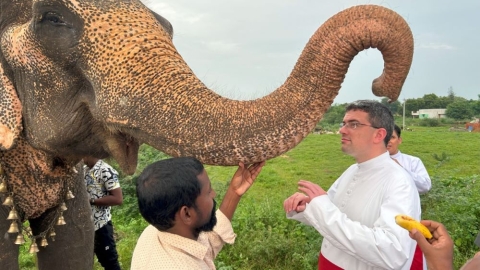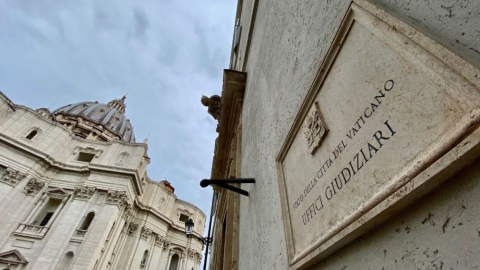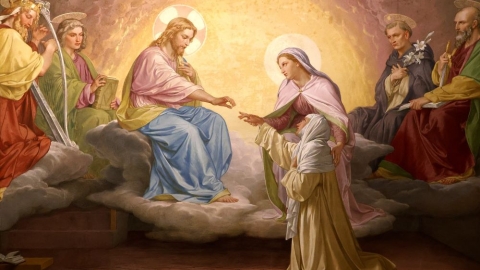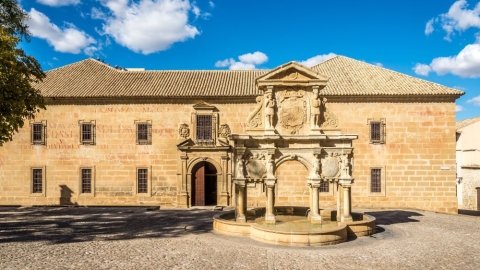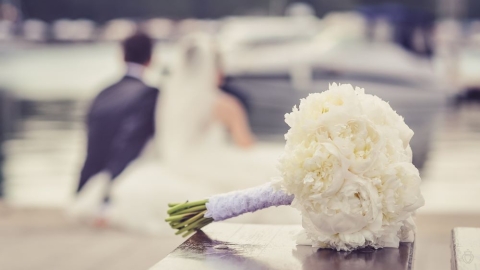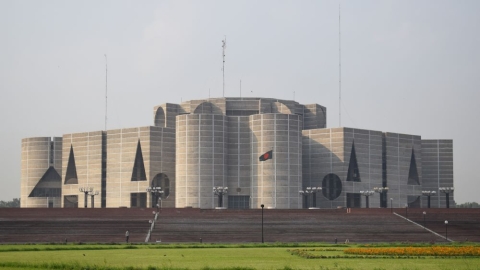China: What End for the Catholic Church in China?

Catholic Church in Dali, Yunnan
The AsiaNews press agency of the Italian Foreign Missions (PIME) published an article by Fr. Gianni Criveller, president of the PIME foundation. Director of AsiaNews since September 2023, sinologist, historian, and theologian, he lived and taught in the Chinese world (Hong Kong, Taiwan, Macao, and mainland China) for 27 years.
We reproduce here extracts from his analysis on the situation of the Catholic Church in China, published on February 12, 2024, while the trial of Catholic businessman Jimmy Lai currently continues in Hong Kong.
Fr. Criveller’s Analysis
“From what we can know, 2024 should be a decisive year for dialogue between China and the Holy See: the 2018 agreement, renewed twice, will have to be permanently ratified or abandoned.”
“If it is true that the Pope appoints the bishops, they are not chosen by him but by an autonomous process led by the Chinese authorities, the details of which are not known, as the text of the agreement remains secret.… This dissonance - appointments that seem to give strength to the agreement on one side; silence on the role of Rome on the other - is even more evident if you read the Five-Year Plan for the Sinicization of Catholicism in China (2023-2027).”
“This Plan, very detailed and divided into four parts and 33 paragraphs, was approved on December 14, 2023, by the official body that unites the Conference of Catholic Bishops (not recognized by the Holy See) and the Patriotic Association of Chinese Catholics. They operate under the supervision of the United Front, the Communist Party office that governs the country's religious life. The document was published on Christmas Day on the website of the Chinese Catholic Church. A similar document for the Protestant churches was released on December 19th.”
“Consisting of 5,000 characters (corresponding to approximately 3,000 Italian words), the 'Catholic' five-year plan never mentions the Pope and the Holy See, nor the agreement between the Vatican and China. The leader Xi Jinping is cited four times; five times it is reiterated that Catholicism must take on 'Chinese characteristics.’ The word sinicization reigns supreme: it occurs 53 times.”
“The Plan is the work program to make the sinicization process deeper, more ideological, and more effective: ‘It is necessary to intensify research to give theological foundation to the sinicization of Catholicism, to continuously improve the system of sinicized theological thought, to build a solid theoretical foundation for the sinicization of Catholicism, so that it constantly manifests itself with Chinese characteristics.”
“Those who have studied the religious policy of the Chinese government for years do not find any great innovations in this approach: what impresses us, however, is the firmness and peremptoriness of the language. As if there had been no dialogue and no rapprochement with the Holy See; as if the pope's recognition of all Chinese bishops counted for nothing; as if there were no agreement between the Holy See and China that offers the world the impression that Roman Catholicism has found hospitality and citizenship in China.”
Jimmy Lai’s Exemplary Courage
“I am deeply disappointed by the diplomatic position of the Vatican. I only interpret it as a return to the past of relations with communist regimes, to the time of the Soviet Union and its different entities. We’ve seen… how it’s been done for over 50 years,” said Fr. Robert Sirico, co-founder of the Acton Institute.
Executive producer of the film The Hong Konger, he made these remarks in October 2023, in Rome, during the presentation of the documentary on the valiant fight led by Catholic entrepreneur Jimmy Lai against the Beijing government. The film had been viewed more than a million times on YouTube and more than 4 million on TikTok in just two weeks, as American journalist Daniel Payne reported on December 18, 2023.
Jimmy Lai, 76 years old and founder of the Apple Daily newspaper, has been in prison in Hong Kong for more than three years for having supported the pro-democracy movements and criticized the communist government. After the hasty annexation of Hong Kong, the Chinese communist government was able to suppress opposition protests on the island by imposing the National Security Law which took effect on July 1, 2020.
During an interview given on October 5, 2020, reports the American Catholic News Agency, Jimmy Lai confided that he had supported the pro-democracy movement in Hong Kong for 30 years, because of “the teaching of the Lord according to which your life is not centered on yourself.”
Arriving illegally from China at the age of 12, converting to Catholicism in 1997, and baptized by Cardinal Joseph Zen Ze-kiun, then bishop of Hong Kong, the businessman also clarified in this interview that he had not intended to go into exile with his family, although he is a British citizen, as he is motivated by his faith in God. “If I leave, I am not only renouncing my destiny, but also God, my religion, that in which I believe.”
Arrested on August 10, 2020, then incarcerated since December 2020 in Stanley Prison in Hong Kong, his trial opened on December 18, 2023. He pleaded not guilty to the charges against him: conspiracy to commit produce seditious documents, conspiracy to collude with foreign powers.
Jimmy Lai risks a life sentence in this trial “which is taking place in an increasingly grotesque manner,” as the Foreign Missions of Paris emphasizes. In prison, he often paints and creates works on religious themes, little appreciated by the authorities who tried to prevent him.
Since the end of February, one of his painted works has been exhibited in the chapel of the Catholic University of America in Washington, D.C. It is drawing of Christ on the cross, with his signature at the bottom, as well as the place and date of creation: Stanley Prison in Hong Kong, August 13, 2022. Christ is represented on a large cross of green wood, surrounded by eight large flowers with orange hearts. Jimmy Lai confided to Fr. Sirico that he considers his imprisonment as a way to unite himself with the Passion of Christ on the cross, adding “that the blood of the martyrs is the seed of the Church.”
During the October 5, 2020 interview, Jimmy Lai emphasized China's need for moral guidance from the Vatican, but expressed disappointment over the Vatican's negotiations with the Chinese Communist Party (CCP), in particular the September 2018 agreement on the appointment of bishops. “The moral void in China,” he emphasized, “is an opportunity for Catholicism to fill it and teach people that ‘life is more than bread.’”
The Chinese, he said, “want religion, but above all they want virtue and morality, to live a meaningful life, which the Vatican does not give them. That is what the Vatican takes away from them when it aligns with the CCP, which has suppressed them in their spiritual quest. This is really ridiculous. This is very disappointing.”
Related Article:
(Sources : AsiaNews/zenit/CNA/MEP/EWTN/DICI n°442 – FSSPX.Actualités)
Illustration : Flickr / Rod Waddington (CC BY-SA 2.0 Deed)
